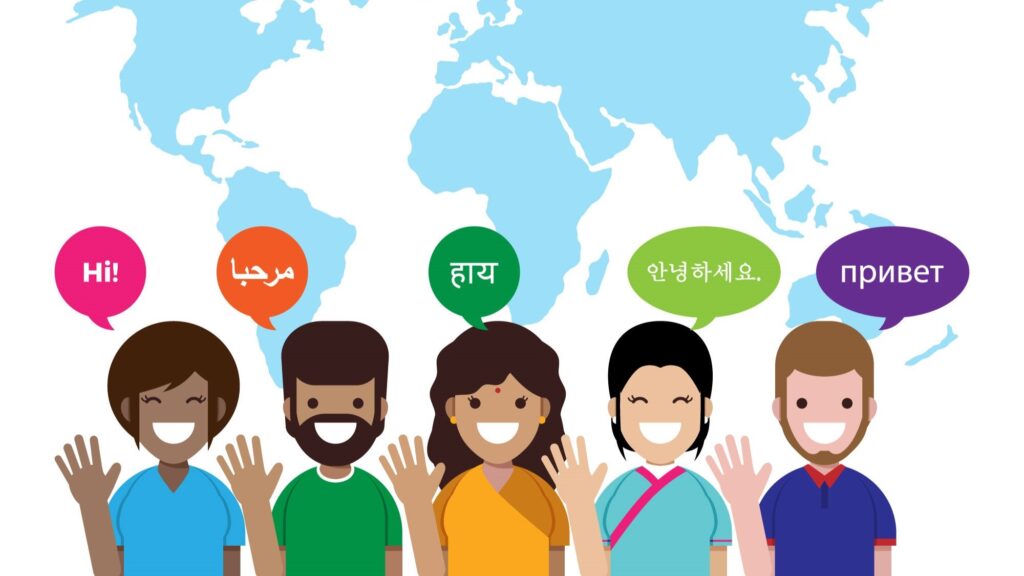
Businesses aiming for global success cannot rely on a single-language website. With diverse languages, cultural nuances, and user expectations, businesses must tailor their online presence to meet the needs of international audiences. This is where website localization services becomes a critical strategy for expanding reach, increasing engagement, and driving conversions worldwide.
Website localization is more than just translation; it involves adapting content, visuals, design, and functionalities to resonate with local audiences. Global localization ensures that businesses don’t just attract visitors but also retain and convert them effectively. Verbolabs, a leader in webpage localization and web content localization, provides end-to-end solutions to help businesses localize their digital presence seamlessly.
What is Website Localization?
Website localization refers to the process of adapting a website’s content, design, and functionality to suit different linguistic and cultural preferences. Unlike simple translation, which merely converts text from one language to another, website localization takes into account various regional differences. These include language nuances, currency formats, measurement units, legal compliance, and user behavior. The goal of website localization is to ensure that users from different parts of the world have a seamless and culturally relevant experience when visiting a website.
Localization not only enhances user engagement but also improves brand credibility. By making a website more accessible and intuitive for international audiences, businesses can expand their reach, improve customer retention, and increase conversions.
What is Global Localization?
Global localization for business ensures that a website is not only linguistically translated but also adapted to be culturally appropriate for different target markets. This involves a holistic approach to modifying website elements beyond text translation, ensuring that every aspect aligns with local expectations and preferences.
Key elements of global localization include:
- Adjusting images and graphics to reflect cultural aesthetics and avoid potentially offensive or misinterpreted visuals.
- Modifying date and time formats according to regional standards, such as MM/DD/YYYY in the U.S. versus DD/MM/YYYY in Europe.
- Integrating local payment gateways to facilitate smooth transactions using preferred regional payment methods.
- Customizing UI/UX elements such as colors, layouts, and navigation to align with cultural usability preferences.
- Legal and regulatory compliance, ensuring that privacy policies, terms, and disclaimers meet local laws.
By implementing global localization, businesses can build trust with international customers, making their website feel native and intuitive regardless of the visitor’s location.
Example of Localization
Some of the world’s leading brands have mastered website localization, demonstrating its importance in driving engagement and market penetration. Here are a few notable examples:
- Netflix: The streaming giant customizes its content library, subtitles, dubbing options, and pricing models based on the user’s geographical location. This ensures that users receive a personalized experience tailored to their language and entertainment preferences.
- McDonald’s: The fast-food chain adapts its menu, promotional offers, and website visuals according to local tastes. For example, McDonald’s India features a range of vegetarian options, while McDonald’s Japan incorporates teriyaki-flavored burgers to suit regional preferences.
By leveraging website localization, businesses can create a global presence with a local touch, ensuring that users feel valued and understood, no matter where they are in the world.
Why Website Localization is a Game-Changer for Global Businesses

In today’s digital economy, businesses looking to expand globally must ensure their websites resonate with diverse audiences. Website localization is a powerful strategy that goes beyond translation, adapting content to fit cultural, linguistic, and regional preferences. This not only enhances user experience but also drives conversions, brand loyalty, and global reach. Here’s why businesses cannot afford to overlook localization:
1. Boosts User Engagement & Conversions
A localized website allows users to interact with content in their native language, making navigation intuitive and enhancing overall user experience. Studies reveal that over 72% of consumers prefer shopping on websites available in their language, and 56% of users consider information in their own language more important than pricing when making purchasing decisions. By providing relevant, culturally adapted content, businesses can create a seamless browsing experience that increases customer retention and conversion rates.
2. Improves SEO & Organic Traffic
Webpage localization plays a crucial role in multilingual SEO, helping businesses rank higher on regional search engines. Search engines prioritize content that is contextually relevant to users, meaning a localized website with region-specific keywords, meta descriptions, and structured data will attract more organic traffic. Additionally, implementing hreflang tags ensures that the right version of a website appears for the right audience, boosting visibility and reducing bounce rates.
3. Builds Trust & Credibility
Users are more likely to trust and engage with brands that communicate in their language and respect their cultural nuances. Localized content not only helps businesses connect with international audiences but also establishes credibility. When a company invests in localization, it signals commitment to customer satisfaction and accessibility, encouraging customers to make purchases and interact with the brand.
Moreover, cultural sensitivity in website localization ensures that images, symbols, colors, and messaging align with regional expectations. A well-localized website avoids cultural faux pas, strengthens brand identity, and fosters long-term customer relationships.
For businesses aiming for global success, website localization is not just an option—it’s a necessity. From improving user engagement and SEO performance to building trust, a localized website creates a competitive advantage in international markets. Investing in website localization ensures that businesses don’t just attract visitors but convert them into loyal customers, ultimately driving revenue and growth.
Also Read:
- Top 10 Localization Companies in the USA
- Top 10 Software Localization Companies in the USA
- Top 10 Localization Mistakes That Must Be Avoided To Make Your Business Successful
Key Challenges in Website Localization & How Verbolabs Solves Them

While website localization offers numerous benefits, it also comes with challenges that businesses must overcome:
1. Language & Cultural Differences
- Challenge: Direct translation may result in misinterpretation or loss of meaning.
- Solution: Verbolabs employs professional linguists and localization experts who ensure that translations are contextually and culturally appropriate.
2. Adapting Website Design & UX
- Challenge: Certain languages (e.g., Arabic, Hebrew) require right-to-left (RTL) text formatting, affecting website design.
- Solution: Verbolabs provides technical localization services, ensuring seamless UX across different regions.
3. SEO Optimization for Multilingual Content
- Challenge: Translating a website without optimizing it for search engines can reduce visibility.
- Solution: Verbolabs incorporates SEO best practices, including keyword research, hreflang tags, and meta descriptions for each language.
4. Integrating Software & App Localization
- Challenge: Many businesses struggle to integrate software localization and app localization with their websites.
- Solution: Verbolabs provides end-to-end solutions, ensuring smooth synchronization between webpages, apps, and software platforms.
The Verbolabs Approach to Website Localization

Verbolabs employs a structured and strategic localization process to ensure that websites are not only translated but also culturally adapted for maximum engagement and effectiveness. Here’s how Verbolabs ensures high-quality localization results:
1. Market Research & Strategy
Before localizing content, Verbolabs conducts in-depth research to understand regional preferences, cultural nuances, and linguistic variations. This allows them to tailor a localization strategy that resonates with the target audience while maintaining brand consistency.
2. Translation & Cultural Adaptation
Verbolabs goes beyond word-for-word translation by ensuring accurate, natural, and engaging content that aligns with cultural norms. This involves adapting tone, idioms, and expressions to make content more relatable to local audiences.
3. Technical Integration
A successful localized website must function seamlessly. Verbolabs ensures that all UI/UX elements, currency, payment methods, and formatting (such as date and time) are adapted to meet the expectations of users in different regions.
4. SEO Optimization
To maximize visibility, Verbolabs integrates multilingual SEO strategies by optimizing localized keywords, implementing hreflang tags, and structuring metadata for different markets. This ensures better search rankings and increased organic traffic.
5. Quality Assurance & Testing
To guarantee a flawless user experience, Verbolabs conducts linguistic quality assurance, usability tests, and functionality checks. This ensures that the website operates efficiently across multiple devices and languages.
Example of Localization Handled by Verbolabs
VerboLabs’ website localization services helped a global e-commerce brand boost conversions by 30% in just three months. With tailored content and SEO optimization, the platform became more engaging and strengthened its global presence.
The Future of Website Localization
The landscape of website localization is continuously evolving, driven by technological advancements and shifting consumer expectations. Businesses must stay ahead of these changes to maintain a competitive global presence. Here’s what the future holds:
1. AI & Automation in Web Content Localization
Artificial Intelligence (AI) is revolutionizing website localization by enhancing translation accuracy, automating content adaptation, and speeding up workflows. AI-powered machine translation tools, combined with human linguistic expertise, are reducing time and costs for businesses while improving localization efficiency. Future innovations, such as natural language processing (NLP) and AI-driven cultural adaptation, will make localized content even more seamless and contextually accurate.
2. Mobile-First Localization
With over 60% of global internet users accessing websites via mobile devices, businesses must prioritize mobile-friendly localization. This involves optimizing content layouts, user interfaces, font sizes, and load speeds to ensure a smooth experience across different screen sizes. Additionally, voice search optimization and localized app integration will play a significant role in enhancing mobile accessibility for global users.
3. Emerging Market Opportunities
Businesses are increasingly targeting emerging markets such as Africa, South America, and Southeast Asia, where internet adoption and digital commerce are rapidly growing. To succeed in these markets, companies must adopt tailored global localization strategies that address language preferences, cultural sensitivities, and regional internet infrastructure. Providing localized payment solutions, region-specific customer support, and multilingual content will be key to engaging new audiences and driving conversions.
Conclusion
As businesses continue to expand globally, website localization will remain a key driver of success. By leveraging AI, optimizing for mobile, and tapping into emerging markets, companies can enhance user engagement, improve accessibility, and build strong international brand loyalty.
A well-localized website can dramatically increase engagement, conversions, and trust among global audiences. Businesses that invest in webpage localization and localized content gain a competitive edge in international markets.
Verbolabs offers comprehensive localization services, ensuring seamless adaptation for businesses looking to expand globally. Whether you need software localization, app localization, or web content localization, Verbolabs delivers expert solutions tailored to your brand’s needs.

Expand globally with confidence—partner with VerboLabs for expert website localization services today!



